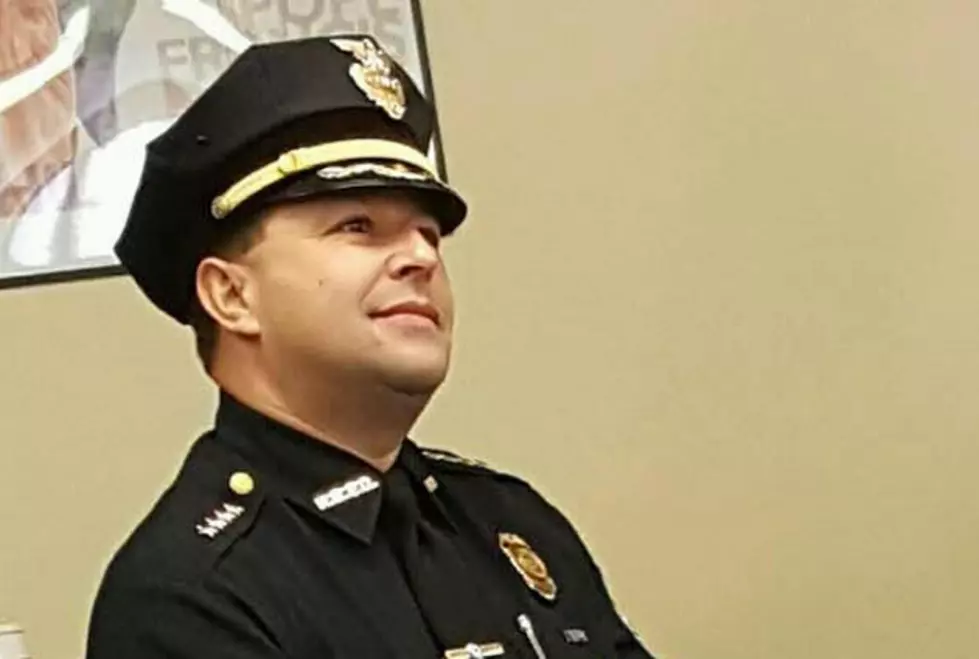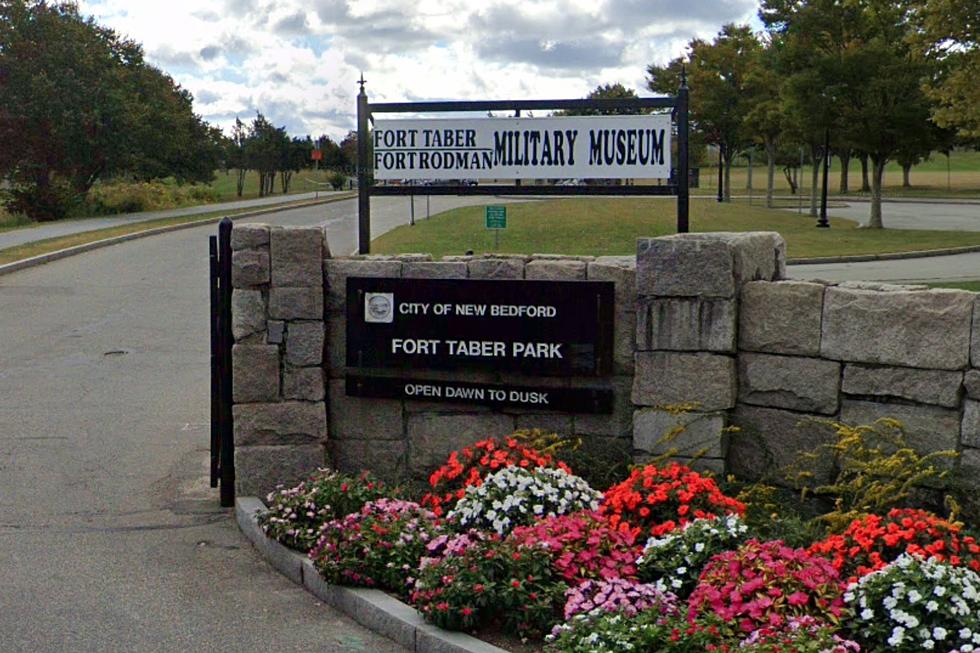
New Bedford Police Chief’s BOLO Claim Questioned
Starting off his program on Thursday afternoon, WBSM’s Barry Richard broke the news of the latest development in the case of the shooting of the home of a New Bedford police officer: that New Bedford Police Chief Joseph Cordeiro incorrectly stated that there was a BOLO radio message put out in relation to the search for the suspect, having confirmed to Richard Thursday morning that he had been given “some bum information,” as Richard put it.
Richard said that despite statements by both Cordeiro and Mayor Jon Mitchell that officers were alerted to the incident via what would have been a widespread BOLO (be on the lookout) radio alert, the early notification was actually a far more localized BOLO “terminal message” and limited in its reach.
This backed up claims by New Bedford Police Union President Hank Turgeon and others within the department that they had not been properly notified of the threat against one of their own.
“The chief finally admitted to you in a private conversation that he was wrong,” Turgeon said in calling into Richard’s program after hearing Thursday’s revelation. “I can tell you and your listeners right now, what he’s going to do now is point fingers everywhere but at himself, instead of accepting the blame himself.”
Early last Thursday, a male suspect opened fire on a police officer’s residence in the Brickenwood development. The officer was not home at the time, and when he did return around 8 a.m. Thursday morning, he found evidence of the shooting and reported the incident.
According to the account given by New Bedford Police Chief Joseph Cordeiro on Richard’s Tuesday program, once police were notified, they used surveillance video to get a plate number of the vehicle involved, and a short time later issued a BOLO radio broadcast to police to let them know the vehicle for which they were searching. Not long after that, Cordeiro said, the car was in custody, although the suspect remained at large.
“We got involved in this case at about 8:20 in the morning, when we found out shots were fired earlier in the day. We tracked that plate and within a little over an hour later, about 9:30 or so, shortly after that, we put out a BOLO on that vehicle,” Cordeiro said. “Every officer on that shift that has their radio on had the information that went out, so everybody knew.”
Cordeiro reiterated again that a BOLO radio broadcast had gone out, and that “everybody that was working knew exactly what we were looking for.” When Richard questioned if the BOLO had details that an officer’s residence had been shot – because, Richard said, his sources were telling him officers didn’t know of that fact until they were informed via email at 3:43 p.m. the day of the incident – Cordeiro did not expand on what information was provided to officers via the BOLO.
“If you’re on a paid detail and you’ve got your radio on, you would have heard it,” Cordeiro said. “If you’re in a cruiser it comes on your (mobile data terminal), it comes on your radio, that BOLO went out, everybody that’s working would have got it. Anybody that was working and had their radios on would have had it.”
On Wednesday, New Bedford Mayor Jon Mitchell backed up Cordeiro’s statement that a BOLO radio broadcast went out in relation to the incident.
Later on Wednesday’s program, however, New Bedford Police Union President Hank Turgeon called into Richard’s program to make the case that, BOLO or not, officers were not properly informed that there was an armed suspect at large who had already fired upon the residence of a New Bedford police officer. Turgeon went so far as to claim that Cordeiro and Mayor Jon Mitchell’s administration “sugercoat” crime for the sake of “tourism.”
Richard opened Thursday’s program by describing how his sources told him instead of a BOLO radio broadcast, as Cordeiro had been suggesting, a “terminal notification” was issued, which rather than being sent out over police radios is instead sent directly to the computer terminals in their vehicles.
“It simply said, ‘We are looking for this car with this license plate,’” Richard said. “Never explaining why, or that there was an armed man involved with that vehicle, or that this armed man might be on the street, no description, and it never went out to anyone else in the region, strictly to the local police cars.”
Richard said that after these sources informed him that there was no BOLO radio broadcast put out, he had another source review all audio dispatches to police from January 28, “and there was no record of a BOLO,” he said.
Richard then stated he called Chief Cordeiro to ask him about the information he had received.
“At first, he angrily defended his claim that there was a BOLO (radio call) put out,” Richard said. “And then, when I told him what I knew, he said after doing some further review, he had been given bum information, and there was in fact no BOLO (radio call) issued, that a terminal message had in fact went out.”
Richard said he then asked Cordeiro about the decision not to put out a BOLO that would have alerted area law enforcement about the search for this suspect, and that considering the vehicle was found in Fall River, “an armed suspect was driving through New Bedford, Dartmouth, Westport and into Fall River without police in any of those communities know he was out there.”
“He said the detectives investigating decided no BOLO (radio call) was necessary, for the same reasons (Cordeiro and Mitchell gave), that they considered it could compromise the investigation,” he said.
The New Bedford Police Department issued the following statement to WBSM News, attributed to Chief Cordeiro, along with a log of the terminal message that was released, with the details of the vehicle in question redacted for the integrity of the investigation. WBSM News was provided a copy of the log entry as well and is submitting a public records request to be permitted to publish it.
“A message was issued January 28 at 9:57 a.m. via the department’s electronic messaging system that stated ‘BOLO for (redacted) blue (redacted) stop and hold for questioning detectives. code 4.’”
A “code 4” is used “to describe a person known to or suspected of possessing weapons or a vehicle or location where weapons may be stored,” Turgeon told WBSM.
Turgeon said a terminal message is not an effective way of reaching every officer.
“Only so many cruisers in the city have that terminal, and only if the cruiser has the terminal up, and has a police officer sitting behind the screen reading that message, would have received whatever it was that they put out,” he said. He added there are times when police communications will call attention via the radio that a BOLO has been put out to the terminal, and that officers that don’t have a terminal then have to call communications to ask what the BOLO was about.
Turgeon said that limited reach and a limited amount of information about a potential threat to officers remains an issue.
“We were telling you from the beginning that the officers didn’t know and that was our biggest concern,” Turgeon said. “Every police officer in New Bedford, Dartmouth, Westport and Fall River was in jeopardy from not knowing. So we’ll see how this plays out.”
Turgeon said that is why the union reached out to Cordeiro to suggest that instead, information like this could be sent out via the app that officers use for scheduling details and overtime. He said he is still awaiting a response from Cordeiro about that option.
UP NEXT: See how much gasoline cost the year you started driving

More From WBSM-AM/AM 1420









